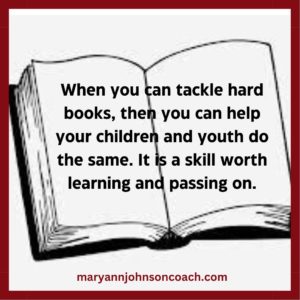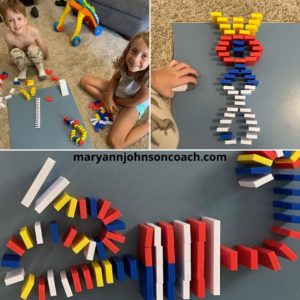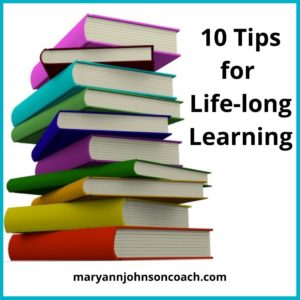 Have you ever wondered how to read books that aren’t easy reads? This has been an issue for me. I LOVE reading but sometimes the classics are a challenge. History can be dry. Some books deal with tough topics. How do you manage those?
Have you ever wondered how to read books that aren’t easy reads? This has been an issue for me. I LOVE reading but sometimes the classics are a challenge. History can be dry. Some books deal with tough topics. How do you manage those?
I just finished a book while at my daughter’s in Seattle, The Midnight Library. It’s a book I would recommend to others, but it wasn’t what I would call a ‘tough read.’ It was a thoughtful and enjoyable read. We all need those now and then but to learn and grow we occasionally need the tough read.
In May of 2023, I finished the book, Confucius – The Analects. Here is what I posted: “OK, this book was a tough read for me! I know exactly why I am not a philosophy major. I do not think deeply enough or abstractly enough. I had friends who read this and told me it was a must-read. So, I read it. Yes, the whole thing, but I confess, I didn’t get most of it.
I think it would have been helpful to me if I had read it in a class or with a book group so that I could hear what others were getting from its pages.
If you like deep thinking, if you like the past, if you like philosophy, then you will like this book. If you have read it I would LOVE it if you left a comment below and told me what you got from it. : ) Help me out. LOL”
The only response I got was from my cousin who said she would read it and get back to me. She hasn’t gotten back to me. : ) As I said, it is a tough read.
A few years ago, I was following a discussion online about the book The Chosen by Chaim Potok. I posted that I had read the book over 30 years ago and hadn’t liked it. I knew while I was reading the book wasn’t getting the full story. I had no one to talk to about it at the time. The online group gave me some great input. I still think about the book on occasion and wish that I had understood it better when I first read it.
In this same online reading group, the conversation turned to The Hunger Games. I hadn’t read the book. I recognized the title because I had seen a trailer for the movie. I decided from the trailer that I wouldn’t like this book. I decided that it wasn’t worth reading.
Then I talked to a friend, Olivia Votaw. She is a great storyteller herself and knows the value of a classic book, or those that are destined to become classics. I read Hunger Games on her advice and was appalled at the storyline, but with her help, I understood its value.
TALK ABOUT WHAT YOU ARE READING
When I read East of Eden, I didn’t like the book and knew I was not going to get past chapter three. There were so many allusions to torrid behavior and so much conflict in the lives of the main characters. I was reading it because my son-in-law said it was one of his favorite books. How in the world could that be!? I called him. He pointed out that it was the best book on choice he had ever read. I kept reading. I never adjusted to the nastiness of some of the characters and felt bugged by the conflicts; however, I was absolutely mesmerized by the truth of his words. It is a powerful statement on choice; that we all have choices and can wield them for good or bad no matter where we come from, what our parents were like, or our life circumstances. The illustration of Cain and Able in the book was so striking that I had to copy the whole thing because I knew I would want to refer to it in the future.
So here is a book that I would never have finished; but good feedback from a family member kept me at it and in the end, I felt it was worth reading. This book changed my perspective on choice.
That is the point I am making. Without feedback from others, to get a different perspective, books about controversial subjects, history, world events, etc., may be difficult to understand. But with help, they can be life-changing, as East of Eden was for me.
If you want to tackle more classics or some of today’s big sellers that will become classics, how can you get the most from the book?
TIPS FOR READING HARD BOOKS
1. Find a comfortable place to read. Settle in. This will be different for each person. For me, it is a page or two at a time in the bathroom. I know it doesn’t sound comfortable, but no one asks me for anything when I’m in there. You may have the luxury of a soft chair or your bed at night. : )
2. Look up unfamiliar words. This is a must, so you don’t get discouraged and quit. Use a phone app. Your youth can show you how. : )
3. Avoid skimming or speed reading. If a book is dense or dry or deals with a subject, I find difficult, well, this is an option I have chosen in the past. I must confess this is what I did in much of Confucius – The Analects. But when you skim, or speed read you miss key points that add to your comprehension.
4. If you own the book, underline passages that seem important. Make notes in the margin of things you don’t understand and then talk to someone else and get their thoughts. Try keeping notes. For some people, this helps them pay more attention to what they are reading. These strategies help you when talking with others about the book, as you can find them more easily to share.
5. If what you are reading is emotionally challenging, or the material feels overwhelming, take a break. Stop reading. Give your eyes and mind a rest. Then take some time to think about what you have read before you pick it up again. That might be a five-minute walk to the kitchen for a glass of water.
6. Don’t stop reading for too long. This is a MUST for me. If I go days in between reads I lose the story. I forget things that help me make sense of the book. I need to read daily, even if it’s only a couple of pages in the bathroom. I just finished reading a history book about the Panama Canal yesterday that had 617 pages. I read it a few pages at a time in the bathroom. It can be done. LOL (It was a bit dry but fascinating to me because I LOVE history.)
7. Share what you are reading. Read with a friend. Join or create a book group. Talk to a librarian. Chat with someone who has read the book. Join an online reading group. Often another perspective can help you get more from a book or keep you reading when you’re tempted to quit. If I hadn’t talked with Olivia, I never would have understood the value of The Hunger Games. If I hadn’t shared my reservations about East of Eden with my son-in-law, I would have missed a powerful novel about choice, because I would have stopped reading it. Share what you are reading. Talk about it. You can do the same for your children as they read hard books.



 I no longer make
I no longer make 
 I am so glad to be back. I have missed you all. I loved the break, but I missed sharing my thoughts and ideas. : ) Here is something that happened to me during my vacation from writing.
I am so glad to be back. I have missed you all. I loved the break, but I missed sharing my thoughts and ideas. : ) Here is something that happened to me during my vacation from writing.
 When I had my first baby I was in college. I had one year left to graduate. However, I didn’t finish, as I needed to put my husband through school. I got a job a couple of blocks from home. When Don graduated, I became a stay-at-home mom for the next fifteen years.
When I had my first baby I was in college. I had one year left to graduate. However, I didn’t finish, as I needed to put my husband through school. I got a job a couple of blocks from home. When Don graduated, I became a stay-at-home mom for the next fifteen years.
 Understanding truth changes lives
Understanding truth changes lives



 I have talked about children’s ‘SPARKS’ in numerous articles and in my book,
I have talked about children’s ‘SPARKS’ in numerous articles and in my book, 
 For many families, school has begun in earnest. Whether you are using the public system, a private system, or homeschooling, September usually means we are deep into it. Some years back, I wrote an article about how to help children remain lifelong learners, to become lovers of learning.
For many families, school has begun in earnest. Whether you are using the public system, a private system, or homeschooling, September usually means we are deep into it. Some years back, I wrote an article about how to help children remain lifelong learners, to become lovers of learning.